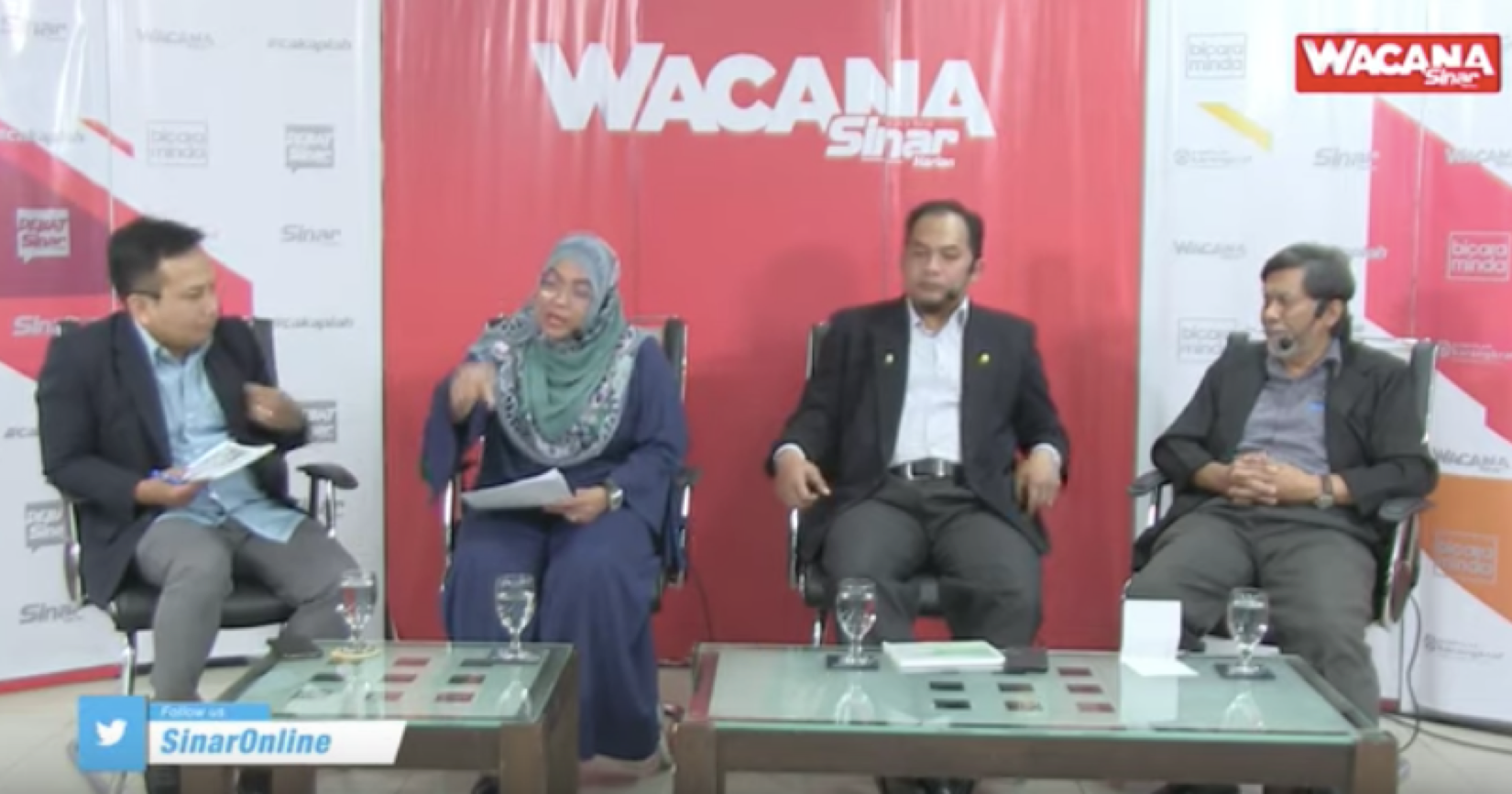A Malaysian panel discussion got rather testy after one of its participants lamented Singapore's so-called "lack of gratitude" over the Water Agreement.
Associate Professor Salawati Mat Basir of the Faculty of Law at the National University of Malaysia (UKM), said that Singapore had not been "neighbourly" when it came to revising the price of water sold by Malaysia to Singapore.
Panellist: How can Singapore put down Malaysia in such an open manner?
According to the New Straits Times, Salawati claimed that Malaysia had not even asked to review the price of water from 1961 until 1987.
She was speaking at a talk on Feb. 18 titled "Perjanjian Air Malaysia- Singapura: Siapa Rugi Siapa Untung? (The Malaysia-Singapore Water Agreement: Who loses out and who profits?)
Salawati added that while Malaysia wants to review the price of water now, Singapore supposedly brought up other issues at an attempt at deflection. Salawati said:
"For instance, when we wanted to negotiate the water pricing, they increased the vehicle entry permit (VEP) fee for Malaysian cars that entered Singapore."
Salawati added:
"What bothers me more is the lack sense of gratitude from our neighbour for all that Malaysia has done for them.
Instead one of its members of parliament had the cheek to say that Malaysia had become a poor country with a lot of debts during a parliament session. This is simply unbecoming of a politician.
How can Singapore put down its neighbour in such an (open) manner?"
Panellist: Court of Arbitration should settle it
Another panellist, Azizan Abu Samah, a professor from University of Malaya's Institute of Ocean and Earth Sciences, said Singapore had to stop being "high and mighty" on the water issue.
Azizan claimed that Singapore approached Indonesia and Papua New Guinea to obtain raw water, but had allegedly been turned down.
Azizan also suggested that the matter should be brought to an international court of arbitration if Singapore didn't want to negotiate directly.
Issue is not price revision, but how it is carried out
Singapore's stance on the 1962 Water Agreement has been clearly communicated several times.
Foreign Affairs Minister Vivian Balakrishnan stated in Parliament in July 2018 that price is not the issue, but rather the method in how the price revision is carried out.
The Water Agreement is included in the 1965 Separation Agreement between Singapore and Malaysia.
In other words, calling into question that Agreement calls into questions Singapore's sovereignty.
No one party can unilaterally change the terms of the Agreement.
Malaysia passed up the chance to review the water price in 1987 because it was to their advantage
As for the 1987 request for a price revision, contrary to Salawati's claim, Malaysia did not ask to review the prices then -- because it benefited financially from it.
Vivian said:
"Malaysia lost its right to review the price of water under the 1962 agreement in 1987.
We have made this point publicly on multiple occasions.
In fact, Malaysia has previously acknowledged that they themselves chose not to ask for a review in 1987 because they benefited from the pricing arrangement under the 1962 Water Agreement."
Singapore treats raw water and sells it back to Johor at a fraction of the cost
It's a well-known fact that while Singapore buys raw water from Malaysia, it sells treated water to Johor for a fraction of the cost.
Singapore invested millions of dollars to develop the Linggiu Dam in Johor and sells treated water cheaply to Johor on a goodwill basis, without prejudice to its rights under the Water Agreement.
If the panellists during the Malaysian talk were aware that Singapore sold treated water to Johor at a fraction of the cost, it was not reported by the New Straits Times.
3rd-party arbitration? Sure.
As for Azizan's suggestion that Malaysia should bring the matter before a court of arbitration, Singapore has already been prepared to do so -- for 17 years.
In a response to Malaysian Foreign Minister Saifuddin Abdullah, Singapore's Ministry of Foreign Affairs stated in 2019:
"Singapore has always been prepared to settle disputes by recourse to appropriate international third party dispute settlement procedures, on terms mutually agreed to by the parties.
In fact, as far back as 2003, then-Minister for Foreign Affairs S Jayakumar said that Singapore was prepared to agree to refer this matter to international arbitration by the Permanent Court of Arbitration in the interest of resolving the dispute."
Malaysia a poor country?
It is also unclear as to which Singaporean MP that Salawati was referring to, who allegedly said that Malaysia is a poor country with lots of debt during a session of Parliament.
In fact, it was former Malaysian Prime Minister Najib Razak who previously said that Singapore's debt is higher than its GDP -- although there's a good explanation for this.
In addition, there was indeed someone who said that Malaysia is a "poor country", but it was not a Singaporean.
It was none other than current Malaysian Prime Minister Mahathir Mohamad.
Mahathir in 2019 said:
"We need to fight for this. A rich country (Singapore) (cannot be) buying water from poor countries at such an unreasonable price."
Top image from Sinar Harian's YouTube video.
If you like what you read, follow us on Facebook, Instagram, Twitter and Telegram to get the latest updates.
